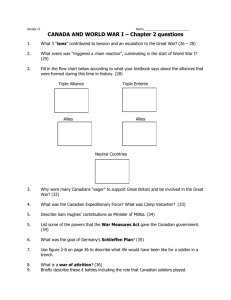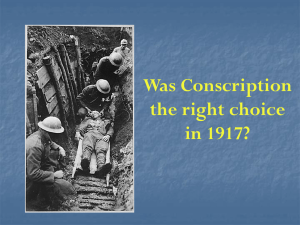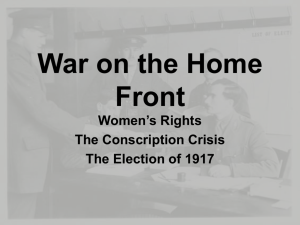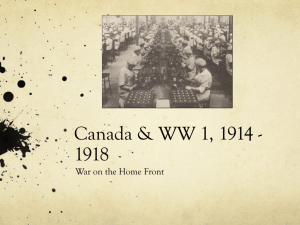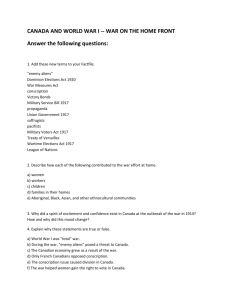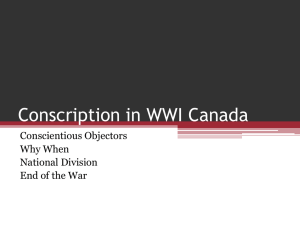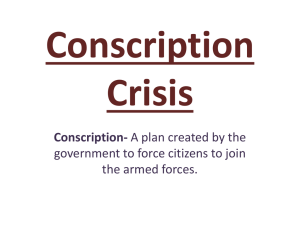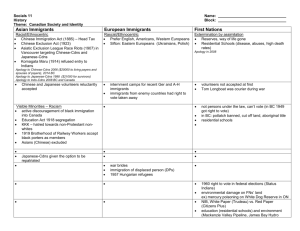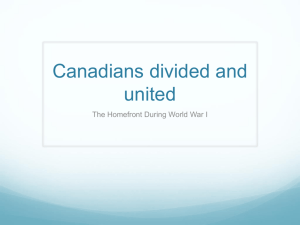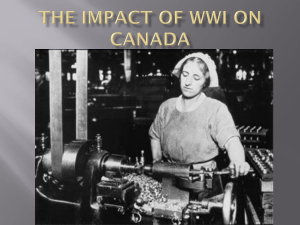File
advertisement
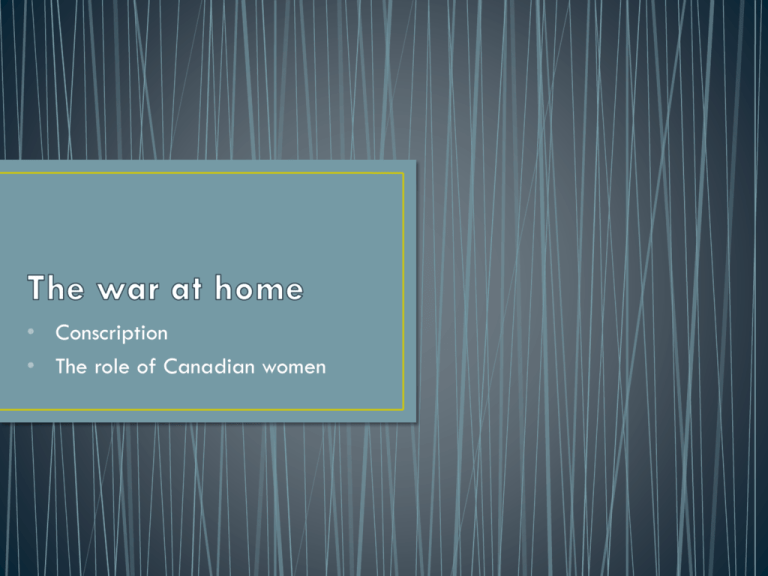
• Conscription • The role of Canadian women Record your group consensus (or lack thereof) after each question 1. Is it appropriate to manipulate information for patriotic purposes during war? What differences are there, if any, between propaganda and advertising? 2. Is there such thing as a justified war? 3. If Canada declared war on an enemy nation, would you volunteer to serve in the armed forces? Why or why not? 4. Should the government have the power to force people into military service? Never? Maybe? Under what circumstances? • By 1916, enlistment was had dropped • From 134,000 to 36,000 • Other reasons not to join: • Employment was up • Not an adventure • Obviously not a quick war • French-Canadians opposed • No patriotic ties to Britain • Ill-treatment • # of volunteers was not sufficient in replacing the large number of those wounded or dead • Borden was convinced more people were needed • Originally promised there would be no compulsory enlistment • Attempted to form a coalition government • Laurier declined 1917 Election: • Borden introduced Military Voters Act • Allowed men and women serving overseas to vote • And Wartime Elections Act • Allowed all Canadian women related to servicemen to vote as well Union Government • Borden’s Conservatives + others who favoured conscription • Union government won 1917 election • Liberals lost significant support outside of Quebec • August 29, 1917: Borden introduced the Military Service Act • 404,385 men were called; 380,510 appealed • Conscientious objectors joined non-combatant corps • Did not fight, but performed work that supported those who did • Ex. potato peeler, stretcher-bearer • Other objectors were abused, deemed a coward, and stripped of their basic needs and rights • March 28, 1918: French-Canadian man arrested • Riot broke out at the conscription registration office & two proconscription newspaper offices in Quebec City • 780 federal soldiers sent from Ottawa • April 1, 1918: 4 demonstrators shot and killed by soldiers • Over 150 casualties & $300,000 in damage • With men overseas, women took on new roles • Some organized committees to send food & letters overseas • Other got involved in volunteer organizations (ex. Red Cross) • Most significant = contribution to the labour force • Munitions production, farmer work, fishing, building aircrafts, etc. Although women were not on the front lines, without their efforts on the home front, Canada’s wartime economy would have collapsed Empowered by their contributions, women pushed for the vote… • 1917: Women with family in the CEF were given the vote (To support conscription) • May 1918: all women over 21 were permitted to vote “It’s World War 1, and many of the country’s men have gone into battle. Twelve Canadian women, aged 86 to 101, recall their entry into what had been a male world of munitions factories and farm labour. Their commitment and determination helped lead the way to postwar social changes for women.” http://www.nfb.ca/film/and_we_knew_how_to_dance

